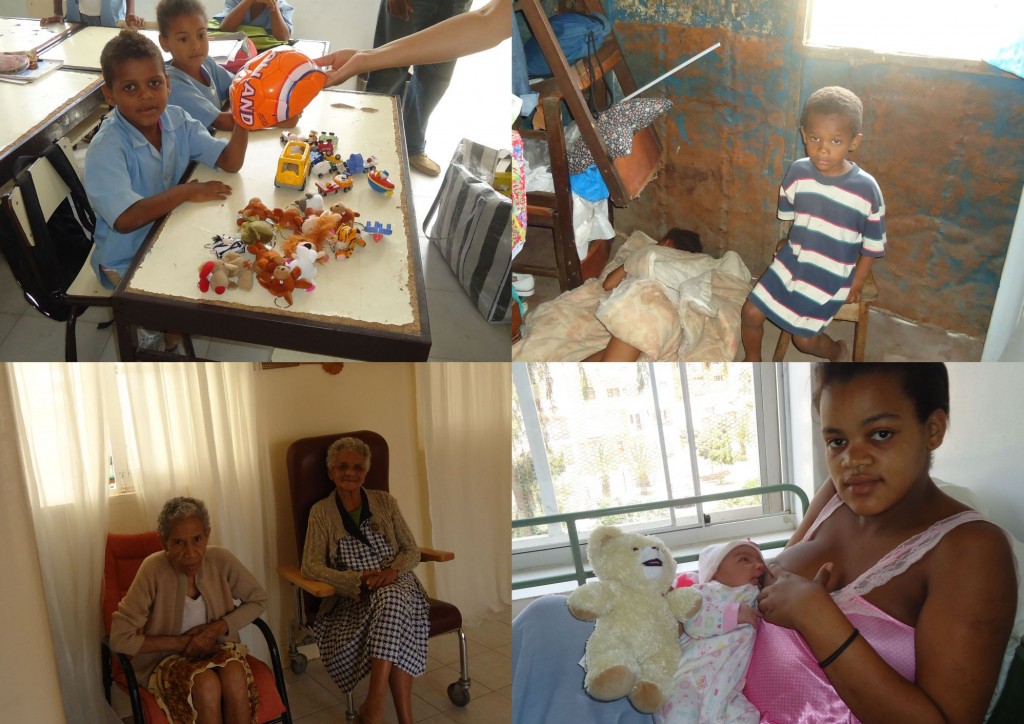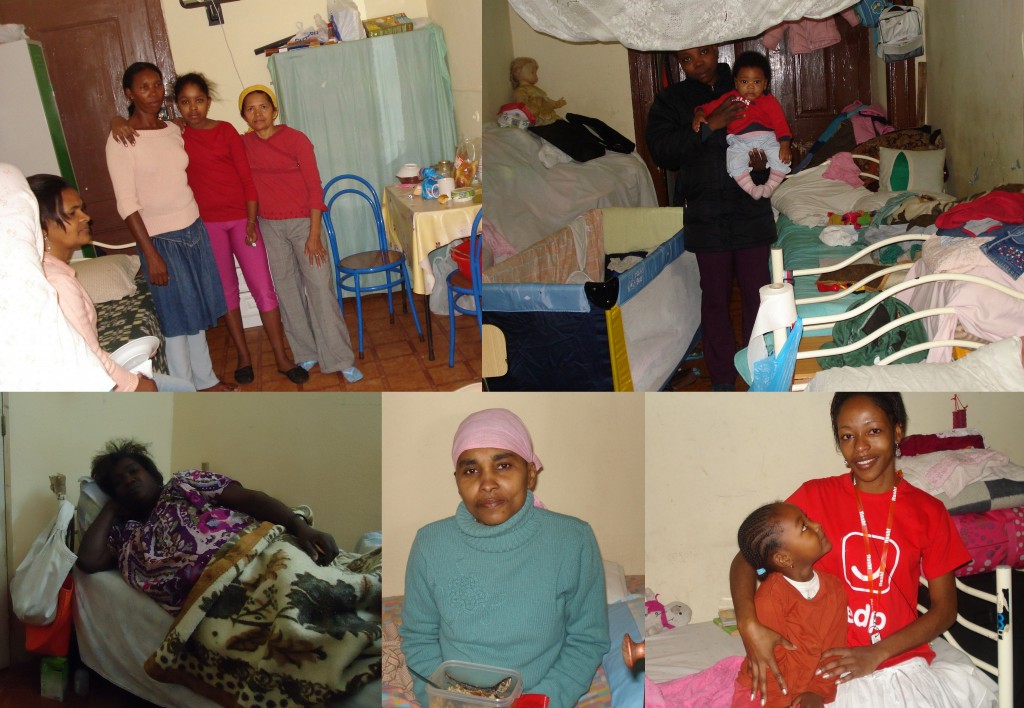Underpriviliged people in Cape Verde
Despite a generally positive trend of economic development in Cape Verde a persistent poverty remains present among a great part of the population and mass unemployment is especially widespread in this West African country. Due to a lack of natural resources Cape Verde has always been vulnerable to any external shocks deriving from the global economy. The worldwide recession since 2008 has therefore hit the socially vulnerable groups in Cape Verde extra hard.
Ironically also in 2008 Cape Verde ‘s development status was graduated to Middle Income Country because of its economic performance. Many international aid projects focussed on the social sector were cancelled in a short time without the national government being able to fill in all the gaps. Leaving many underpriviliged people in Cape Verde without any help all of a sudden. The Dany Foundation therefore aims most of its efforts towards helping the following groups:
• School children
• Single mothers
• The elderly
• Remote rural villages on the island of Santo Antão
• Low income neighboorhoods in cities like Mindelo and Porto Novo
Cape Verdean patients evacuated to Portugal
Each year hundreds of Cape Verdeans are diagnosed with lifethreatening diseases such as cancer or kidney failure. At present Cape Verde cannot provide these patients with a suitable treatment because of a lack of financial means and insufficient medical infrastructure. Therefore Portugal has offered to take into treatment a limited number of Cape Verdean patients each year in its own hospitals. The Portuguese government pays for all the medical expenses while the Cape Verdean government takes care of all other costs. This involves mainly the transport costs from Cape Verde to Portugal and the housing costs in Lisbon.
Sadly it has turned out that the Cape Verdean government has trouble in fulfilling these financial obligations. It is known that sometimes the payment of the (meager) monthly allowances gets delayed by three months! An increasing number of patients that is brought to Portugal has made matters worse in this regard. This means that Cape Verdean patients residing in Portugal, according to estimations a number of over 300, are at times totally dependent on their own financial reserves to pay for their daily food expenses or travelling fare to the hospitals etc. Many Cape Verdean patients arrive in Portugal without insurance or financial savings. They are dependent on all the help they can get from migrated family members who live in Portugal or other foreign countries. When the medical treatment is a long term affair it often happens that these patients, no matter how bad their health situation is, are forced to take a job in Portugal to take care of all their expenses. These people are the worst off. It is known that in extreme cases some patients are known to end up as prostitutes.
The evacuation of Capeverdean patients to Portugal doesn’t only have a great effect on the patients themselves but also on family members and loved ones left behind in Cape Verde. Maintaining contact often proves difficult. This increases the insecurities back home about how well the treatment is proceeding in Portugal. On the other hand the often long separation from their family and homeland has a negative effect on the mental state of patients. Worrying about family members left behind is especially painful for patients who used to be the main source of income for their loved ones.
The Cape Verdean governement has provided for a number of pensions within Lisbon where evacuated patients can reside. Most of these pensions are however notorious within the Cape Verdean community because of faulty maintenance, crowded rooms and lack of hygiene (rats and cockroaches are a structural occurence). Neither the Portuguese government nor the Cape Verdean authorities seems to inspect the older pensions.
For more background information (mostly in Portuguese) about this pressing issue please follow this link: Dossier Doentes Evacuados.
For an overview of newspaper articles mentioning the involvement of the Dany Foundation click on this link: Newspaper Articles.
For coverage by Portuguese media you can also read this article which appeared in a major Portuguese newspaper:
Report in Diario de Noticias
or also view this documentary which appeared on Portuguese television:
«Viagem Sem Regresso» (Journey Without Return)






